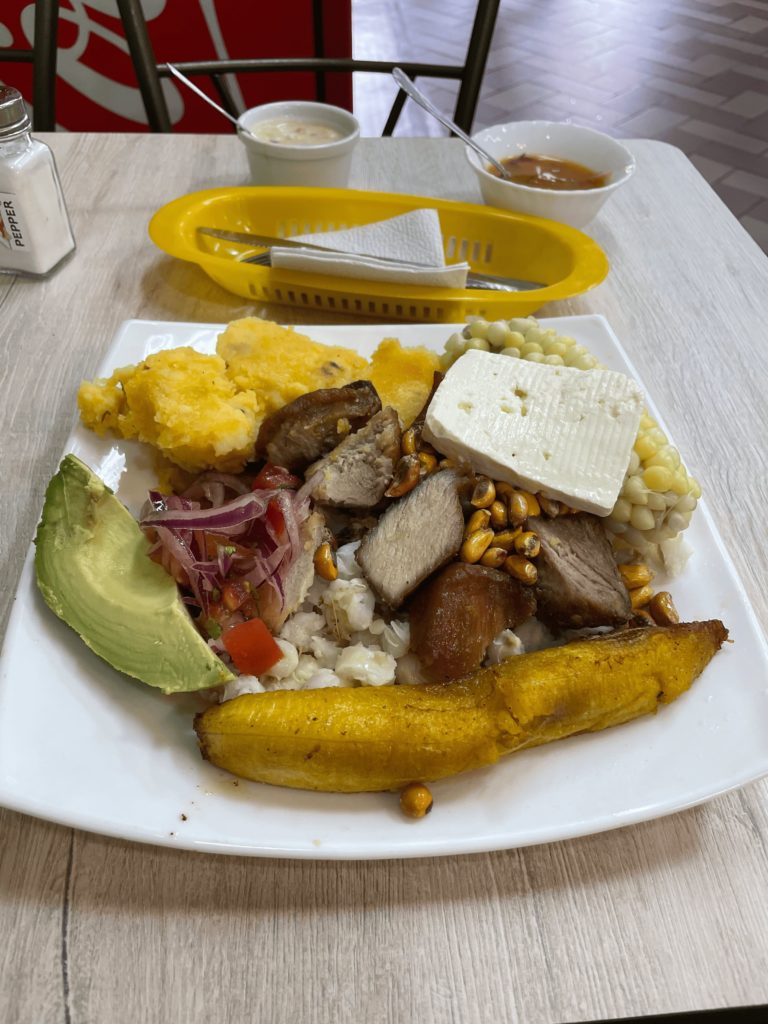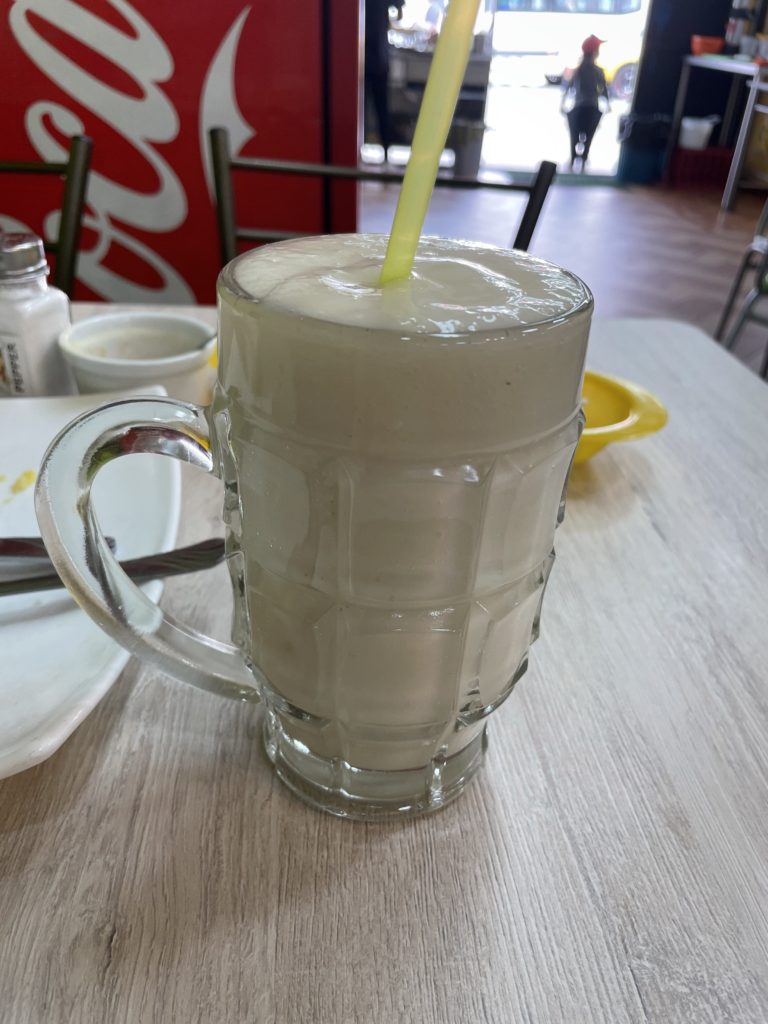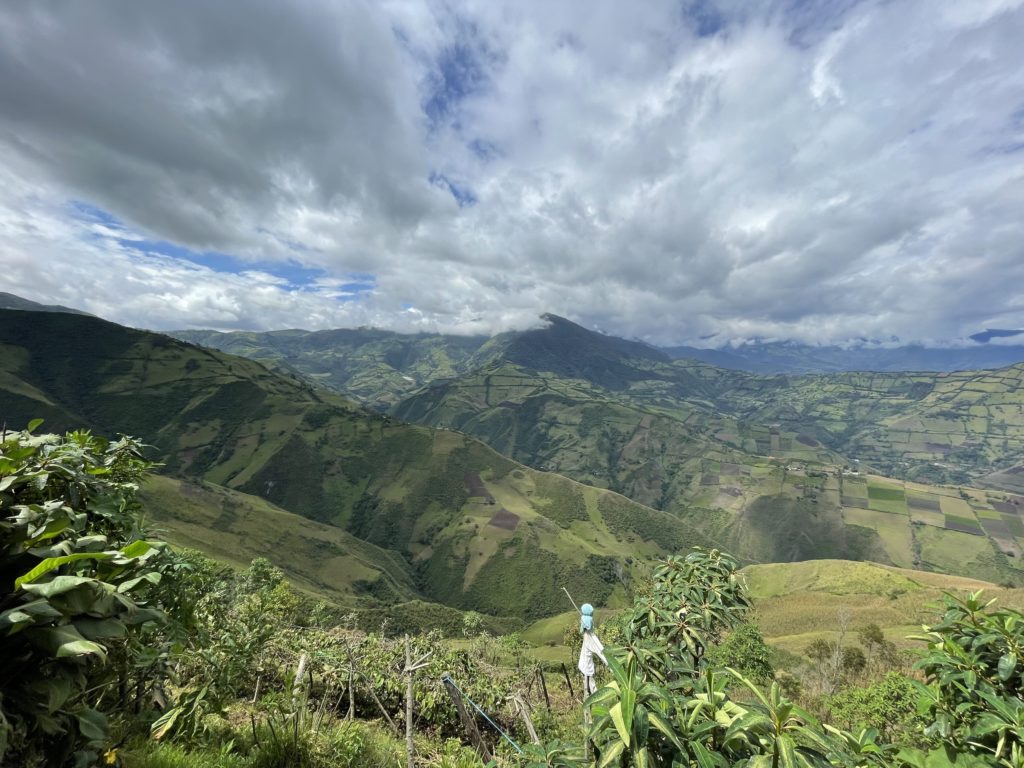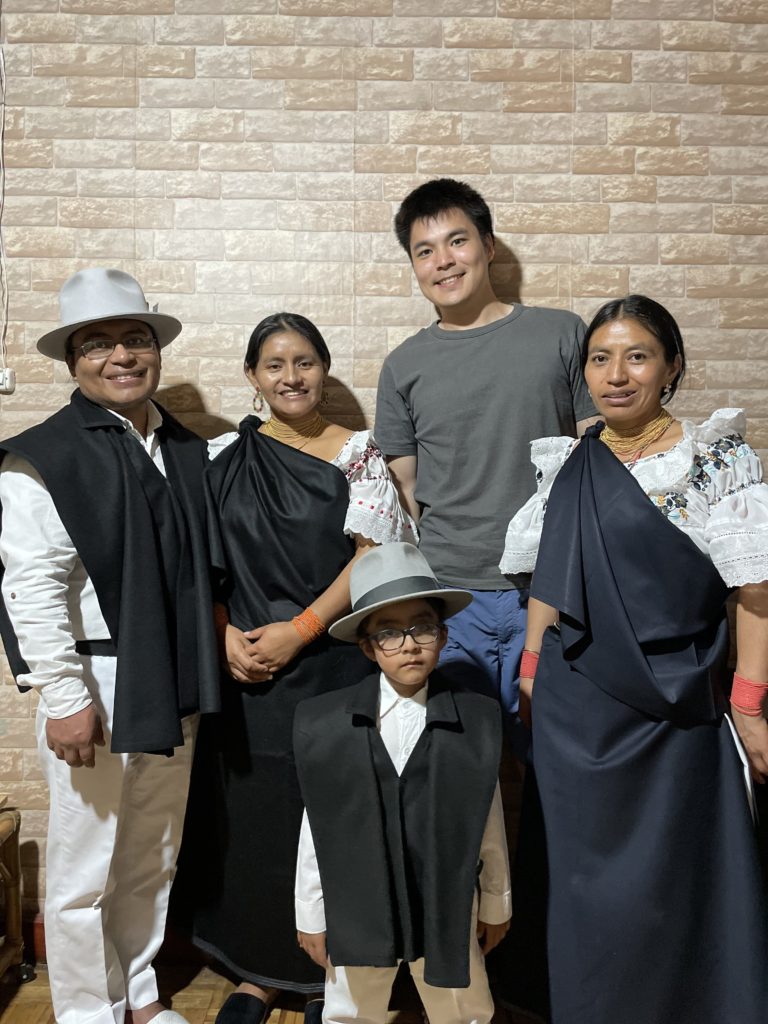
Shuk puncha tuparishun, Quito — we will meet again someday, Quito
When I tell people that I studied Kichwa in Ecuador, they often ask me “Why Kichwa?” or “Why Ecuador?”. I do not have any roots in Ecuador or South America, and my primary research interests were not related to Ecuador before the SLA program. I even knew nothing about Ecuador and Kichwa before coming to Notre Dame. I decided to go to Ecuador to study Kichwa because I was motivated by people I have met (almost coincidentally).
I first got to know about the Kichwa language when I emailed the Quechua FLTA of last year, Jefferson Saransig, in October 2022 to ask about the Quechua class taught at Notre Dame. He told me that He was from Ecuador and was teaching Kichwa. Kichwa is the Ecuadorian variety of the Quechuan languages and is spoken by 150,000 to 500,000 people (uncertain statistics due to lack of reliable census). It is common for younger generations to speak Spanish but not Kichwa (also known as language shift in sociolinguistics) due to the social stigma against expressing indigenousness in Ecuador, and Jefferson was concerned about the future of his own language. Since my project in my department (Natural Language Processing Group) was documenting endangered languages with computational technologies, I decided to take the Quechua course in the following semester to see if my research can actually contribute to the Kichwa language.
During the spring semester of 2023, Jefferson shared with us information about the opportunity to study abroad in Ecuador (Summer Language Abroad program!). By that time, I was mesmerized by the linguistic beauty of Kichwa, and I wanted to visit Ecuador to boost my Kichwa proficiency. From then on, everything went really quickly — Jefferson and I visited Alessia to talk about the opportunity, then I applied, and I got an offer; soon after, I booked the flight ticket and applied to the local Kichwa language school and a homestay program. Right after the final exams, I was already in Quito.
That’s how I started working on Kichwa.
At the time of my arrival in Quito, I barely knew anything about Ecuadorian culture. All I knew was mostly things discussed in my Kichwa classes — but since I have already written about my serious introspections about the culture in the previous posts, in this post I would like to introduce to you my favorite things in Ecuador.
ECUADORIAN FOOD!!

Food is probably the most unforgettable thing I had in Ecuador. The dish in the picture above is called fritada, sautéed pork with various side dishes — tortilla de papa (yellow stuff on top), choclo (corn on top right), queso (cheese on top right), tostada (toasted corn), grilled plantain (bottom), mote (boiled corn in the middle), avocado (left), salad (mid-left). This dish is a beautiful concentration of Ecuadorian local ingredients which would be very hard to get in the United States and Japan (my home country). The taste and texture were something I had never experienced before, and I was totally fascinated after the first bite.

Fresh fruit juice is also something that shocked me. Fruits in Japan are very expensive and I never really thought of buying them when I lived in Japan. In Ecuador, however, they are much more affordable to the locals, and what’s more, they are irresistibly fresh and sweet. The juice in the photo above is jugo de guanábana, a kind of tropical fruit called soursop in English. It was the first time for me to taste the fruit, and it tasted so good that I ordered them in every restaurant I visited where possible.
Andean Nature

Ecuadorian nature was different from the ones that I had been familiar with in any aspect. Ecuador is located on the Equator line, but Quito’s altitude is nearly 3,000m. For this reason, plants, landscapes, temperatures, rainfall, and air quality were all very unique. The photo above is from my host mother’s village, which is a community consisting of only 50 indigenous Kichwas. I had a chance to visit her village on weekends, and I was totally flabbergasted by the amazing landscape there. The overwhelmingly mountainous terrain was surrounding us; the layer of clouds was beneath us; weather could change in ten minutes; the morning was freezing (remember we were at the Equatorial area).
People

As I said, my whole journey to learn Kichwa has been shaped thanks to the people I have met — my host family is definitely one of the biggest influences on me. The photo above is a picture of me and my host family in their traditional Otavalo Kichwa outfit. They were a bilingual family that spoke Kichwa and Spanish at home and talked with me in both languages. They were not only my host family but also my teachers in Kichwa and Spanish, my family, and my friends. I appreciate their kindness and generosity to share their time and space with me.
For the future
My SLA program is over, but the memory about and the attachment to Ecuador and the Kichwas will continue to be rooted inside of me. Before going to Ecuador, I was taking the SLA program as an opportunity to enhance my language skills; however, it was in fact way more than that. Interacting with people there, directly experiencing their culture, and understanding the culture were the biggest factors that shaped the current “me” after the program. I deeply thank the SLA programs, in particular, the supporters, organizers (Mary!), my Kichwa teachers, my host family, and many others for giving me this incredible opportunity. I will continue studying the language and will try to contribute back to the community with my research expertise as much as possible.

